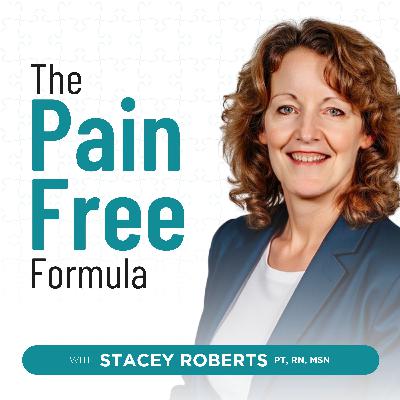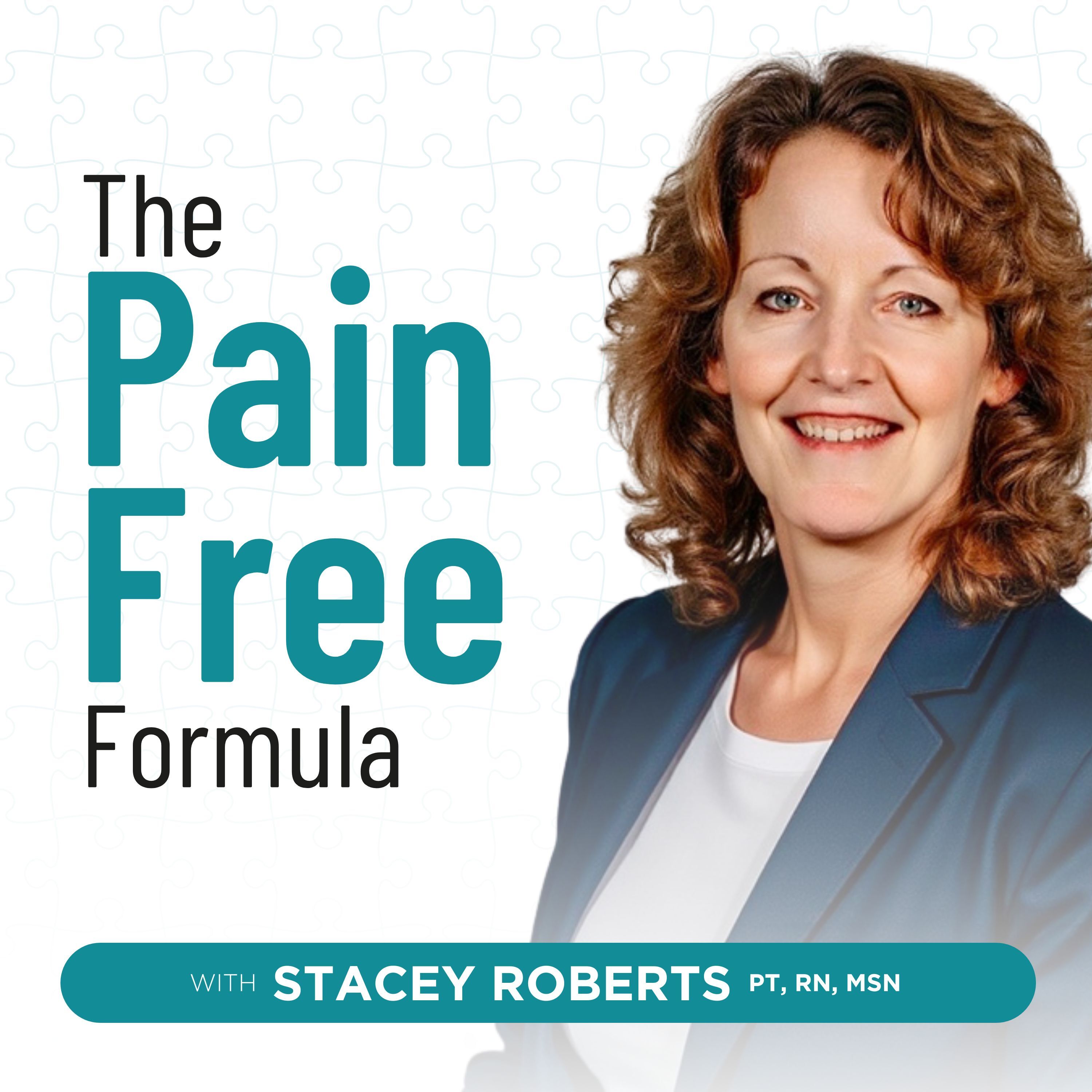25 | The Shocking Truth About Gabapentin and Its Hidden Cognitive Risks
Description
In today's episode of the Pain-Free Formula podcast, Stacey takes a closer look at a widely prescribed drug that was originally developed for seizures but has since become a go-to option for a variety of pain-related conditions: Gabapentin.
You'll learn how it works in the body, why it’s often given out so freely, and why its off-label use has raised concerns among healthcare professionals. Along the way, Stacey highlights the double standard between how medications and natural remedies are evaluated and points to emerging research linking the drug to cognitive decline.
From its surprising history to its current role in treating everything from nerve pain to insomnia, you'll discover how this medication often suppresses symptoms without addressing the root cause of pain. Stacey discusses potential side effects, the problem of increasing tolerance over time, and withdrawal challenges. She also examines recent findings suggesting possible long-term brain health risks, including a connection to dementia, and considers how the drug’s mechanism might interfere with the brain’s ability to adapt and repair itself.
The message of the episode is clear: while the medication may provide temporary relief, sustainable pain management and brain protection require getting to the root cause.
If you've enjoyed this episode of The Pain Free Formula podcast, be sure to leave a review and subscribe today!
Enjoy!
In This Episode You'll Learn:
- Why Gabapentin was originally developed for epilepsy, but is now widely prescribed for nerve pain and other conditions.
- The common side effects of Gabapentin, which include sedation, dizziness, brain fog, balance issues, memory loss, and emotional blunting.
- A 2022 study linked Gabapentin and its cousin, pregabalin, to an increased risk of dementia in older adults.
- Why balancing hormones like estrogen, progesterone, testosterone, and cortisol is crucial for pain perception and overall health.
- And much more...
Resources:
Links to Study 2025:
Risk of dementia following gabapentin prescription in chronic low back pain patients
The association between Gabapentin or Pregabalin use and the risk of dementia: an analysis of the National Health Insurance Research Database in Taiwan https://pubmed.ncbi.nlm.nih.gov/37324474/
The Pain Free Formula: Solving the Puzzle of Muscle and Joint Pain Without Surgery, Drugs, or Injections https://amzn.to/3U0fLbK
New You Health and Wellness https://newyouhealthandwellness.com/
New You Health and Wellness eBooks https://newyouhealthandwellness.com/ebooks/
Grab a copy of The Pain Free Formula book on Amazon https://a.co/d/hTq9kTl
Medical Disclaimer:
Information in this program, as well as any information provided by New You Health and Wellness and its subsidiaries, is provided for informational purposes only. This information is not intended as a substitute for the advice provided by a licensed physician or other healthcare professional, or any information contained on or in any product label or packaging that we supply. Do not use the information on this website or podcast for diagnosing or treating a health problem or disease or prescribing medication or other treatment. Always speak with your physician or other healthcare professional before taking any medication or nutritional, herbal or homeopathic supplement or using any treatment for a health problem. If you have or suspect that you have a medical problem, contact your health provider promptly. Do not disregard professional medical advice or delay in seeking professional advice because of something you have read or heard in this program. Information provided in this program and any other presented by New You Health and Wellness LLC, and the use of any products or services purchased from New You Health and Wellness LLC by you does not create a doctor-patient relationship or healthcare provider-patient relationship between you and any of the health professionals affiliated with our website or clinic. Information and statements regarding dietary supplements have not been evaluated by the Food and Drug Administration and are not intended to diagnose, treat, cure or prevent any disease. Nothing stated or posted on this site or in this podcast or available through any services is intended to be and must not be taken to be the practice of medical or counseling care. For purposes of this agreement, the practice of medicine and counseling includes, without limitations, psychiatry, psychology, psychotherapy or providing healthcare, treatment instructions, diagnosis, prognosis or advice.






